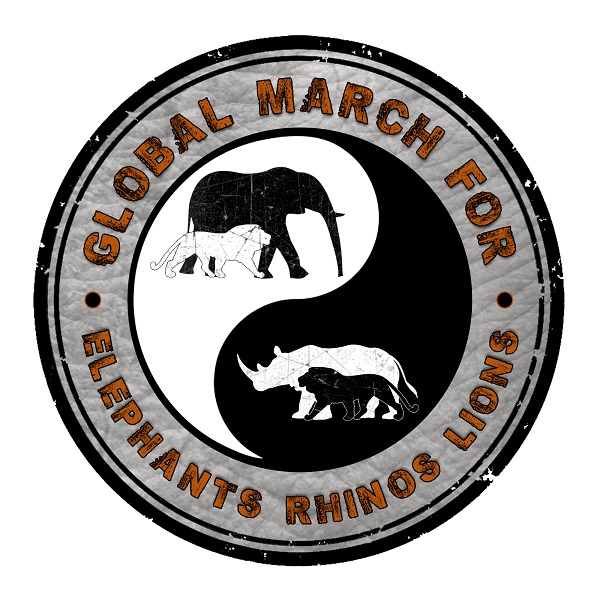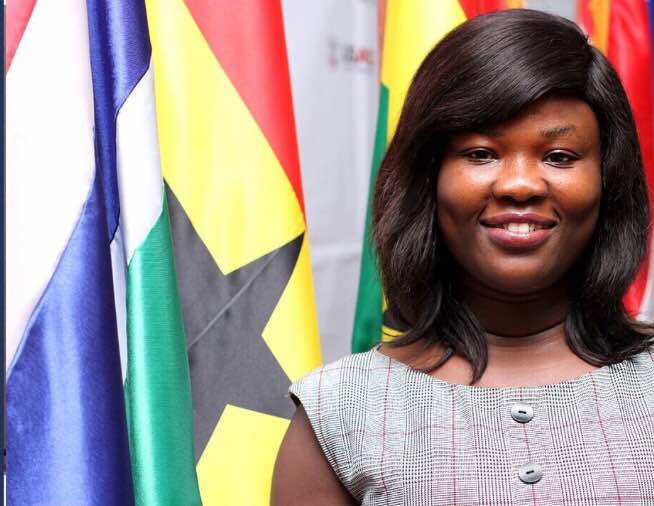
OPEN TO THE PUBLIC
ARIS is honored to host the 4th annual Global March for Elephants, Rhinos, & Lions in Accra. The student centered event is a collaboration between students from SOS-Hermann Gmeiner International College and Al-Rayan International School.
Come on out this Saturday 7 October, 2017 from 3-6 pm for an educational good time! Suitable for adults and kids of all ages. Gate Fee: 2 recyclables or a cash donation.
Agenda
Presentations & Discussions room B-101
- 3:15 pm “Elephants at Mole Park” - Barbara Bilgre, Science Educator & Elephant Researcher.
- 3:30 “Endangered Primates” – Andrea Dempsey, Country coordinator for the West African Primate Conservation Action (WAPCA).
- 3:45 pm “Wildlife Trafficking” - Karen Bel, Environmental Officer, U.S. Embassy.
- Break for speakers 4:00 pm to 4:30 pm
- 4:30 pm “Reforestation in Ghana” - Edem Doe
- 4:45 pm “Reforestation in the Eastern Region” - Dr. Nana Baa Wiredu, Ph.D
- 5:00 pm "Climate change impacts on wildlife" - Portia Adu-Mensah from G-ROC
- 5:30 pm Event Clean-Up

“Elephants at Mole Park” with Barbara Bilgre
As an educator, I believe critical thinking, understanding of multiple perspectives and inquiry skills are more important than the memorizations of facts. I make sure the kids are exposed to experiential learning, and I think that a holistic approach to teaching is the way to get students to see the bigger picture. I am also finally achieving a dream as an educator- I get to involve my students in authentic, applied, relevant research that could make a difference towards wildlife conservation.
Barbara earned her BS in Marine Science, Biology and Psychology at University of Miami /and an MS in Science Animal Behavior: Interdisciplinary Biology and Psychology.
Barbara teaches Biology at SOS-Hermann Gmeiner International College, Tema and is the Head of Science. She also advises the Endangered Species Club Students and the student working on a program advocating for Climate Change policies.
She is in her 17th year as a teacher, with 10 of those at international schools. She studied wild populations of dolphins and manatees for 9 1/2 years in Belize, French Polynesia and Midway Atoll before becoming a teacher.
She has continued to consult and perform surveys on the dolphin project in Belize. In addition, she has volunteered at different wildlife rescue centers in the different countries where I was teaching and working. Currently, she is working on a long-term collaborative project with the Ghana Forestry Commission on the photo-identification of African elephants at Mole National Park, and beginning a population genetics study of the bull elephants. You can follow her work and adventures on her blog: http://onipanyoelephantproject.blogspot.com/2014_06_01_archive.html

“Endangered Primates” with Andrea Dempsey
Andrea Dempsey is the Country Coordinator for the West African Primate Conservation Action (WAPCA). Prior to taking this role Andrea worked at the Zoological Society of London - London Zoo for ten years. Andrea was a Senior Zoo Keeper working with primates and big cats. Andrea was Co-chair of the BIAZA Mammal Working Group Primate Focus Group and Council Member of the association of British Wild Animal Keepers. Andrea first came to know of WAPCA in 2007 when ZSL received a new group of white-naped mangabeys, soon after Andrea headed to Ghana and spent one month working with WAPCA collecting data as part of the breeding research she was doing on behalf of the European Endangered species Programme (EEP). Andrea returned to Ghana in early 2014 to carry out field work as part of her MSc in Primate Conservation, working again with WAPCA conducting primate surveys.
The West African Primate Conservation Action (WAPCA) was an initiative of Heidelberg Zoo, Landau Zoo, Mulhouse Zoo and ZGAP in 2001. Funded annually by a number of Zoological Collections, conservation organizations and private donors our main goal is to effectively preserve primate species in the West-African Upper Guinean Rainforest, which are seriously threatened by extinction. WAPCA operates as an NGO and works in two main ways: community led conservation of the wild primates and their habitat and in captive breeding at the Endangered Primate Breeding Centre, building reserve populations.

“Wildlife Trafficking” with Karen Bel
Karen Bel is the Regional Environment, Science, Technology and Health (ESTH) Officer for West and Central Africa. She is responsible for operation of the Regional Environment Office (REO) Hub based at the U.S. Embassy in Accra, Ghana, where she takes the lead on bilateral ESTH priorities for Embassy Accra and regional ESTH priorities for the Bureau of Oceans, Environment, and Science, Office of Public Policy and Outreach (OES/PPO). Key priorities for the OES bureau include monitoring climate change / adaptation and mitigation efforts; combatting wildlife trafficking; protecting public health; conserving ocean resources; and managing water resources.
Prior to her Hub position in Ghana, Karen served as the Deputy Political Advisor (POLAD) at EUCOM (U.S. Joint Armed Forces, European Command) in Stuttgart, Germany, under the Civilian Deputy to the Commander. She has served as Political/Economic officer in Hamburg, Germany; Deputy Political Officer in Kinshasa, Democratic Republic of Congo; Consular Section Chief in Recife, Brazil; and Labor/Economic Officer in Harare, Zimbabwe.
Before she joined the Foreign Service, Karen practiced labor and employment law with Adams and Reese, LLP in New Orleans, Louisiana, and worked in the field as a refinery operator with British Petroleum/Alliance Refinery, Belle Chasse, and Louisiana. Karen earned her undergraduate degree (magna cum laude) in Communications at Loyola University / New Orleans, and her JD in civil law with a specialty in Environmental Law at Tulane Law School.

“Reforestation in Ghana” with Edem Doe
Edem Kojo Doe, a professional Landscape designer who has practiced for the past seven (7) years. Edem has taught Floriculture, Olericulture and Plant Identification at the School of Horticulture, Aburi Botanic Gardens from 2011-2015. He is currently studying Environmental education at the University of Education, Winneba. Edemis a Revolutionary Naturalist, Earthpreneur, Environmental and Gender Activist.

“Reforestation in the Eastern Region” With Dr. Nana Baa Wiredu, Ph.D

"Climate change impacts on wildlife" - Portia Adu-Mensah from G-ROC
Mrs. Portia Adu-Mensah is the National Coordinator of 350 GROC (Ghana Reducing Our Carbon) and the Chief Executive Officer of Dream Hunt (DH) a Non-Governmental Organization in Ghana. She is a Creative Activist for Global Power Shift organized by 350.org in Turkey.
She is a graduate from Central University College, Faculty of Accounting and Finance with a Degree in Banking and Finance. Her love for the environment and urge to fight against climate change in Ghana has inspired and motivated her to lead, join and support environmental campaigns and events that promote environmental sustainability and climate justice.
Portia brings on board knowledge from her academic background into environmental activism where she believes choosing the ecosystem over economics is the only way to solve the climate crisis. Over the years she has grown and matured into a vibrant environmental activist and with someone who studied Banking, this is an inspiring and admirable shift indeed. She is the secretary for the Coalition of NGO's in Tema. (CONGOT). She was the Eagles President at Young African Leaders Initiative (YALI) West Africa Cohort II. She volunteers for Water Aid, Abibiman Foundation, PerVita Foundation and Strategic Youth Network Development (SYND). She has supported numerous campaigns in climate change at the grassroots level and nationwide.
Links and Information
- Poaching drives huge 30% decline in Africa's savannah elephants
- Ambitious Great Elephant Census finds nearly one-third of continent’s largest elephants were wiped out between 2007-14, largely due to poaching for ivory